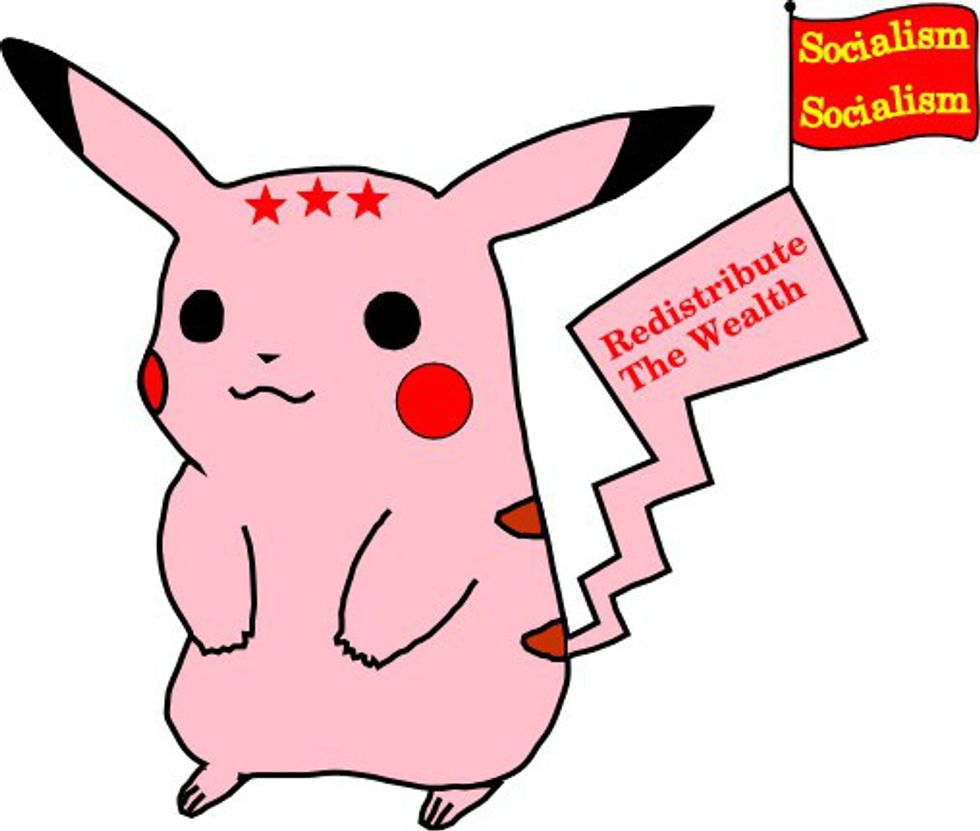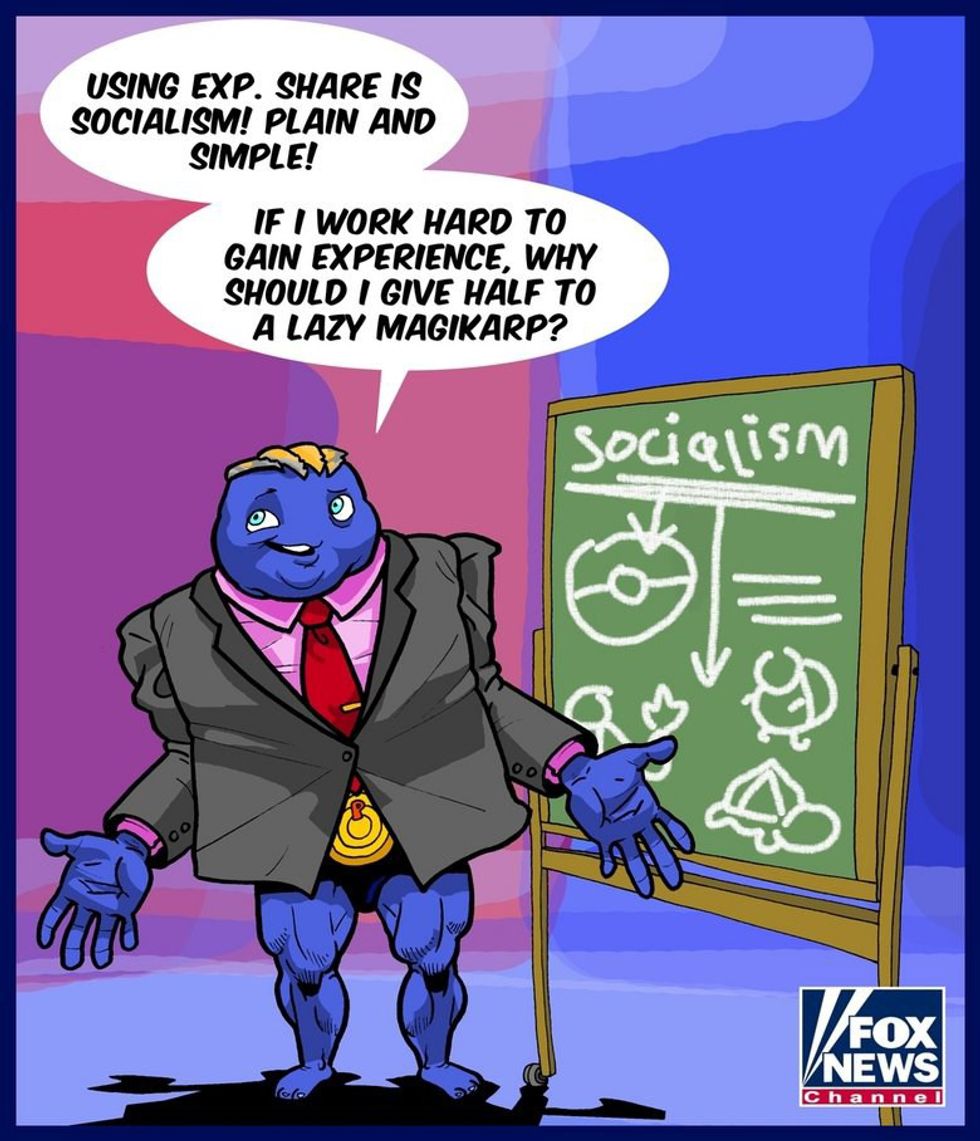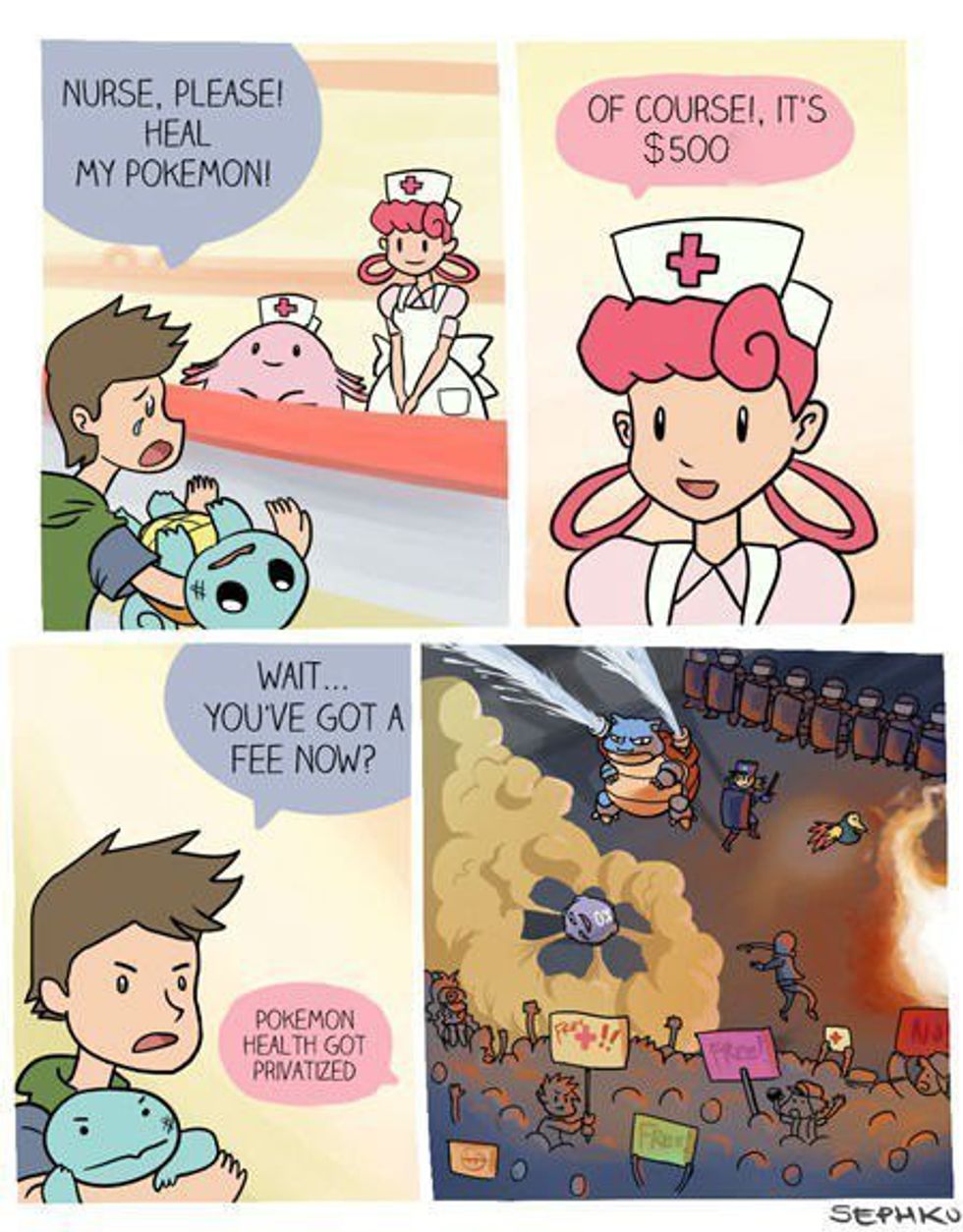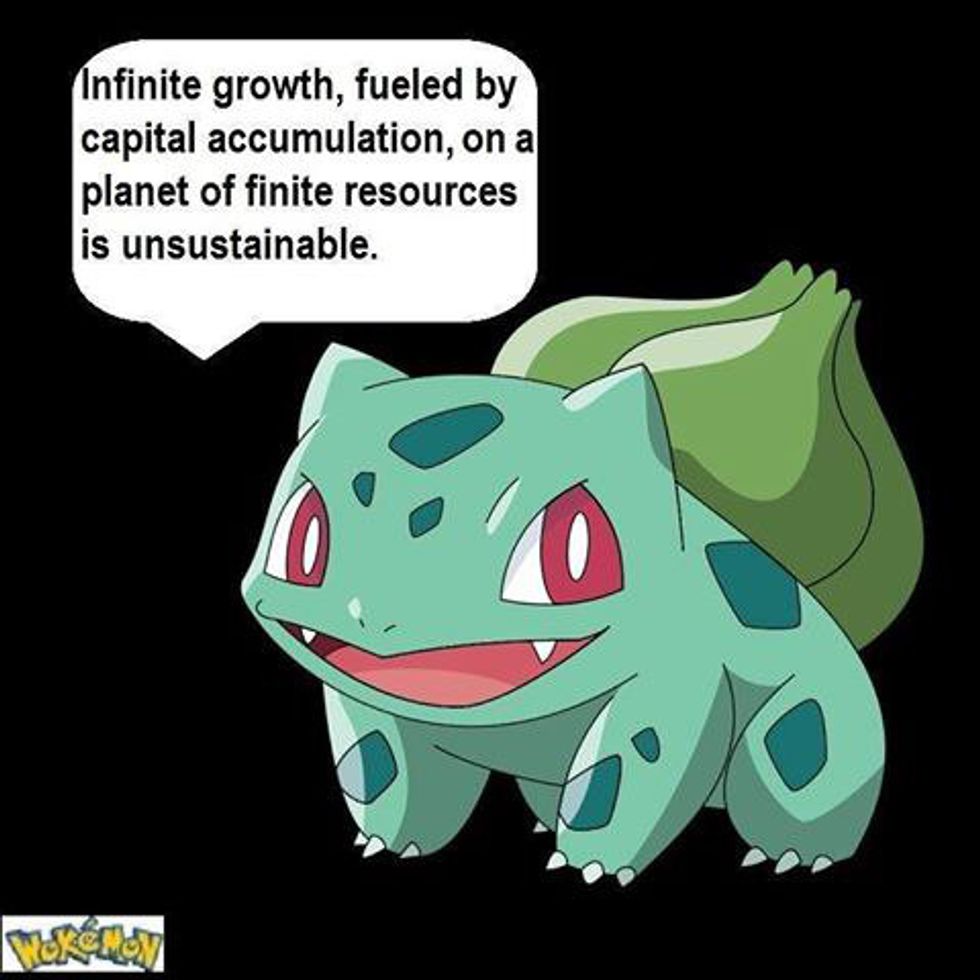The Pokémon games are a phenomenon to say the least. Stretching across a variety of formats since its creation in 1995, the Pokémon franchise has managed to create an impossibly charming world of friendly monsters and idyllic society. Very little in-game attention is paid to the governing bodies and economic systems of the regions that players traverse, but that doesn’t necessarily mean there is no observable evidence of their existence. Buried in the typical deluge of gameplay and story-centric fan forums are a handful of threads dedicated to debating the political landscape of the Pokémon world.
Scrolling through these conversations, some of them years old while others have sprung up more recently to coincide with the latest releases, one question seems to pop up quite a bit more often than others. Time and time again politically minded fans, have wondered, “Is Pokémon socialist?”
Recommended for you
Now obviously no concrete conclusions can be made, seeing as this is mostly a fan base looking way too far into a family friendly video game series, but being a student of history and politics, I decided to venture down the rabbit hole and throw my own observations into the conversation. After all, isn't that part of the fun of being in a fandom?
While I consider myself a leftist, I would like to focus purely on the world of the games themselves. I won’t be arguing whether or not these ideas or systems work in reality, nor will I be using Pokémon as some sort of pro-socialistic talking point. My goal is simply to relate my own observations and then follow up with more in-depth research. This article is being split into two pieces, with this week focusing on my own personal opinions, while the second part will focus on more thorough research into the games themselves and the fan theories online.
From my time with the Pokémon series (mostly spent playing Yellow, Gold, Y, Alpha Sapphire, and now Moon) I’ve come to think of it as an Eco-Socialist Utopia. Throughout the series, as players strike up conversations with the NPCs they encounter, a heavy cultural emphasis on an environmentalist, egalitarian society is established. Themes of friendship, camaraderie and acceptance are all common topics in every region from Kanto all the way to Alola. Pokémon X and Y's Professor Sycamore even opens the early game with this message. The citizens of each town and city are also absurdly generous, gifting passersby with supplies for their journey ahead and warmly sharing tips with travelling trainers. The cultural norm seems to lean more towards communal and collaborative ideals rather than purely individualistic ones.
Healthcare in the world of Pokémon is the key element that often sparks these conversations and debates online. Medical assistance is provided rapidly and free of charge, with almost no questions asked, to trainers and their superpowered pocket monsters. While this can be partially attributed to the fabulous science-fiction technology that exists in the games the fact of the matter remains, Pokémon seems to have a socialised healthcare system in place. Pokémon Centres, the buildings where trainers go to access the free healthcare system, are often uniform across a region, (though from one region to another their designs tend to change) and, in Sun and Moon, they also contain the PokéMarts. The PokéMarts are storefronts where trainers can pay for supplies or sell items that they no longer need, and their existence within Sun and Moon shows that they are likely under the same jurisdiction as the Pokémon Centres. If players venture into the City Hall building in Hau’oli City in Sun/Moon, they will encounter an NPC standing off to the right of the information desk who states that the city hall’s functions include, “supporting the folks who work at the Pokémon Center,” showing that these establishments fall under some sort of government programme.
All of this being said, if it were some sort of socialist utopia, it would be incorporating elements of Social Democratic/Democratic Socialist values in its allowance of free enterprise. Corporations and stores that are not operated by the government exist throughout the Pokémon universe, and while much of the transportation seems to be publicly funded and municipally controlled, there are several examples of private transportation. It is interesting to note that of the instances where large scale companies are present in the games, these corporate entities are at times seen as shady and sometimes even directly connected to criminal activities.
Though the world of Pokémon is left fairly vague, there seem to be quite a few pieces of evidence to support the idea that it all takes place in some sort of leftist utopia. I’d personally argue that it is an Ecological Social Democracy with elements of other leftist ideologies, but this is all a raw response. Next week I’ll be delving into the fan theories, wiki pages, and other sources of evidence for a more complex look at the world of Pokémon!






















